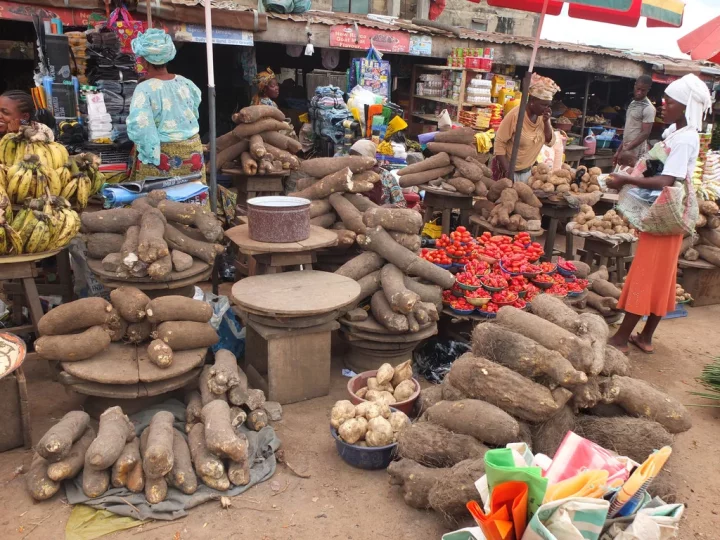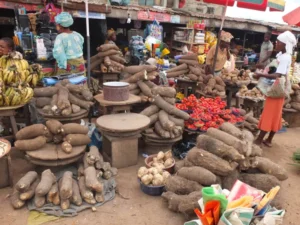Address Nigeria’s Food Insecurity Immediate – IMF Urges FG
The International Monetary Fund (IMF) has urged the Nigerian government to prioritize addressing food insecurity as a matter of urgency.
This recommendation was made in the IMF’s End-of-Mission statement, which was released after the completion of the IMF Staff 2024 Article IV Mission to Nigeria.
The statement, which contains preliminary findings from the IMF staff team’s visit to the country, highlights the challenging economic situation faced by the new government.
This includes issues such as low growth, low revenue collection, increasing inflation, and longstanding external imbalances.
“Addressing food insecurity is the immediate priority.
”The recent approval of a well-targeted and effective social protection system is an important step towards addressing food insecurity in Nigeria, and its implementation will be crucial,” IMF stated, noting that the decision by the Monetary Policy Committee (MPC) to further tighten monetary policy would help contain inflation and pressures on the naira.
The announcement indicated that a delegation from the IMF, headed by Axel Schimmelpfennig, the IMF mission chief for Nigeria, traveled to Lagos and Abuja from February 12 to February 23, 2024, to engage in discussions regarding the 2024 Article IV Consultations with Nigeria.
The team held meetings with the Minister of Finance and Coordinating Minister of the Economy of Nigeria, Wale Edun, and the Governor of the Central Bank of Nigeria (CBN), Olayemi Cardoso.
Additionally, they interacted with various high-ranking government and CBN officials, representatives from the Ministries of Agriculture and Environment, as well as individuals from sub-national entities, the private sector, and civil society organizations (CSOs).
The statement said that at the end of the visit, Schimmelpfennig issued the following statement:
It reads: “Nigeria’s economic outlook is challenging. Economic growth strengthened in the fourth quarter, with Gross Domestic Product (GDP) growth reaching 2.8 percent in 2023. This falls slightly short of population growth dynamics.
”Improved oil production and an expected better harvest in the second half of the year are positive for 2024 GDP growth, which is projected to reach 3.2 percent, although high inflation, naira weakness, and policy tightening will provide headwinds.
“With about eight percent of Nigerians deemed food insecure, addressing rising food insecurity is the immediate policy priority. In this regard, staff welcomed the authorities’ approval of an effective and well-targeted social protection system.
“The team also welcomed the government’s release of grains, seeds, and fertilizer, as well as Nigeria’s introduction of dry-season farming.”
Schimmelpfennig noted that the recent enhancements in revenue collection and oil production were positive developments.
He also highlighted that Nigeria’s inadequate revenue mobilization hinders the government’s capacity to address unexpected challenges and foster sustainable growth.
“Non-oil revenue collection improved by 0.8 percent of GDP in 2023, helped by naira depreciation. Oil production reached 1.65 million barrels per day in January as a result of enhanced security,” Schimmelpfennig said, noting that the capping of fuel pump prices and electricity tariffs below cost recovery could have a fiscal cost of up to three percent of GDP in 2024.
He said the recently approved targeted social safety net program that will provide cash transfers to vulnerable households needed to be fully implemented.
”This is before the government can address costly implicit fuel and electricity subsidies in a manner that will ensure low-income households are protected.
“The team welcomed the MPC’s decision to further tighten monetary policy. The MPC increased the policy rate by 400 basis points to 22.75 percent for a total tightening of 1,025 basis points since May 2022.
“This decision should help contain inflation, which reached 29.9 percent year-on-year in January 2024, and pressures on the naira,” he added.





